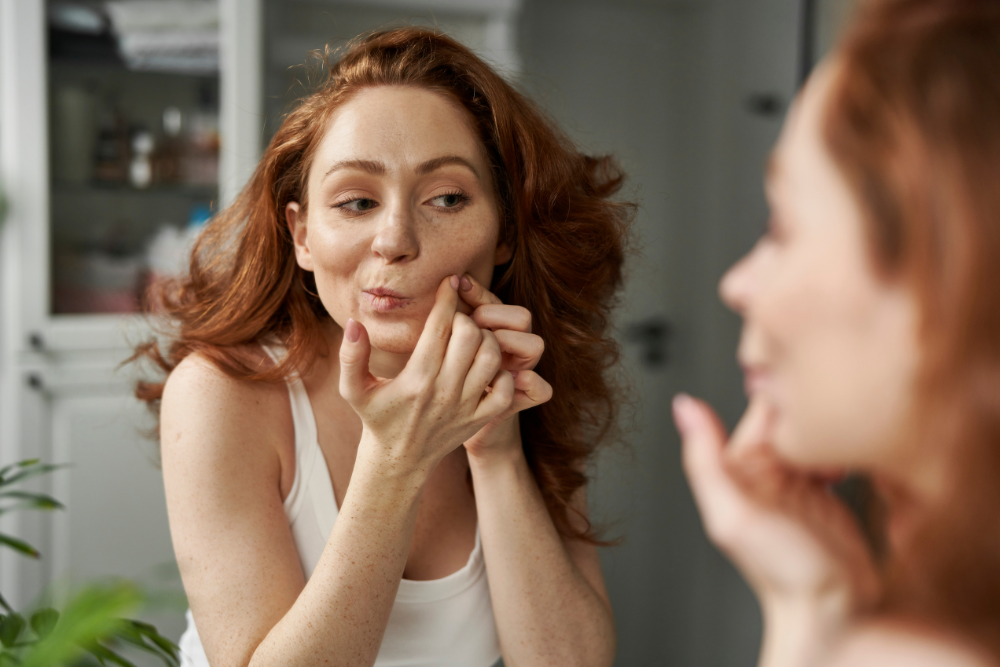Eczema, also known as atopic dermatitis, is a persistent skin condition marked by red, itchy, and inflamed patches. Managing the incessant itch can be challenging, but with the right strategies, you can find quick relief. This guide explores various methods to stop eczema itching immediately, from simple home remedies to advanced treatments.
Understanding Eczema
Atopic dermatitis is a chronic skin condition that usually starts in childhood. It is characterised by dry, itchy, and red skin. Sometimes, small blisters form, and the affected areas can become infected, especially with the bacterium Staphylococcus aureus. While eczema is not contagious, it can significantly impact one’s quality of life.
Causes of Eczema
Eczema results from a combination of genetic and environmental factors. A mutation in the filaggrin gene, vital for skin barrier formation, makes it difficult for the skin to repair itself after damage. This disruption allows moisture to escape and allergens to penetrate the skin, triggering inflammation and itching (1).
A family history of eczema, hay fever, or asthma increases the likelihood of developing the condition. Although diet rarely causes eczema, some individuals might experience flare-ups due to food allergies (1).
Symptoms of Eczema
Common symptoms include:
- Dry skin
- Red and scaly patches, especially on the elbows and knees
- Fluid weeping from affected areas
- Intense itching
- Lesions that can become infected
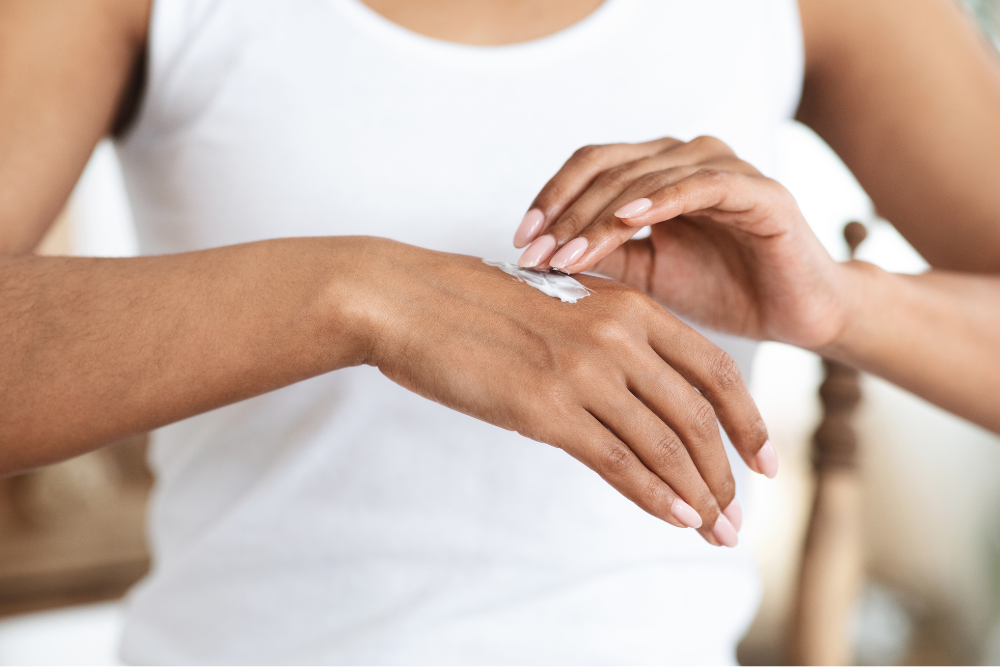
Managing Eczema: Daily Strategies
Eczema management involves avoiding triggers and adopting skin-friendly habits. Here are some practical tips:
Hygiene Practices
To reduce the risk of infections and soothe irritated skin:
- Take lukewarm showers or baths instead of hot ones.
- Use soap-free cleansers or just warm water for washing.
- Pat your skin dry with a towel, rather than rubbing it.
- Apply bath oils to keep your skin moisturised.
Reducing Skin Irritation
Protect your sensitive skin by:
- Avoiding overheating; wear multiple light layers instead of heavy clothing.
- Steering clear of perfumed or medicated bath products.
- Wearing soft, natural fabrics like 100% cotton.
- Using protective gloves when handling chemicals or detergents.
- Moisturising your skin thoroughly after swimming in chlorinated pools.
Beauty Product Caution
Even hypoallergenic products can irritate eczema-prone skin:
- Avoid fragrances and strongly scented products.
- Test new cosmetics on a small area of the skin first.
- Minimise the use of makeup when possible.
Managing Allergies
Environmental allergens can trigger eczema. Consider allergy testing to identify specific triggers and avoid them whenever possible.
Handling Temperature Changes
Abrupt changes in temperature and humidity can irritate your skin:
- Keep your indoor environment comfortable but not too warm in winter or too cool in summer.
- Avoid strenuous activities in hot weather to prevent excessive sweating.
Dietary Considerations
While diet is not a common trigger, if certain foods seem to worsen your eczema, consult a doctor or dietitian for proper testing and advice. Avoid self-diagnosing food allergies to prevent unnecessary dietary restrictions.
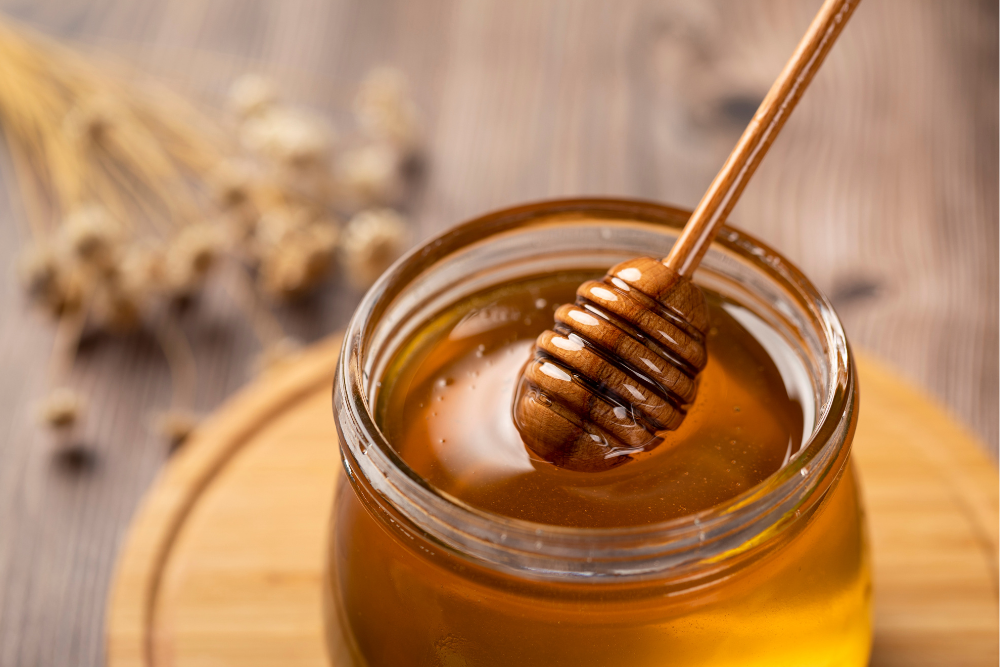
General Tips
- Keep fingernails short to reduce skin damage from scratching.
- Consider using a water-softening device if you have hard water.
- Swimming in seawater can alleviate symptoms, but always protect your skin from sun damage.
Treatment Options for Eczema
Effective treatment often involves a combination of topical and systemic therapies (1):
Moisturisers (Emollients)
Regularly applying moisturisers helps maintain skin hydration and integrity (1). Use them daily, especially after bathing.
Anti-Inflammatory Ointments
Topical corticosteroids and non-steroidal anti-inflammatory creams can reduce inflammation (1). Always use the lowest effective strength and apply after thoroughly drying your skin post-bath.
Coal Tar
Coal tar can help reduce itching but has a strong odour and can stain fabrics (1). Use it under medical supervision.
Phototherapy
Controlled exposure to ultraviolet radiation can improve eczema symptoms (1). This therapy requires several sessions under medical supervision to avoid risks like premature skin aging and cancer.
Oral Medications
For severe cases, oral corticosteroids or newer treatments like injectable biologics and a Janus Kinase inhibitor might be prescribed (1). These treatments require careful medical oversight due to potential side effects.
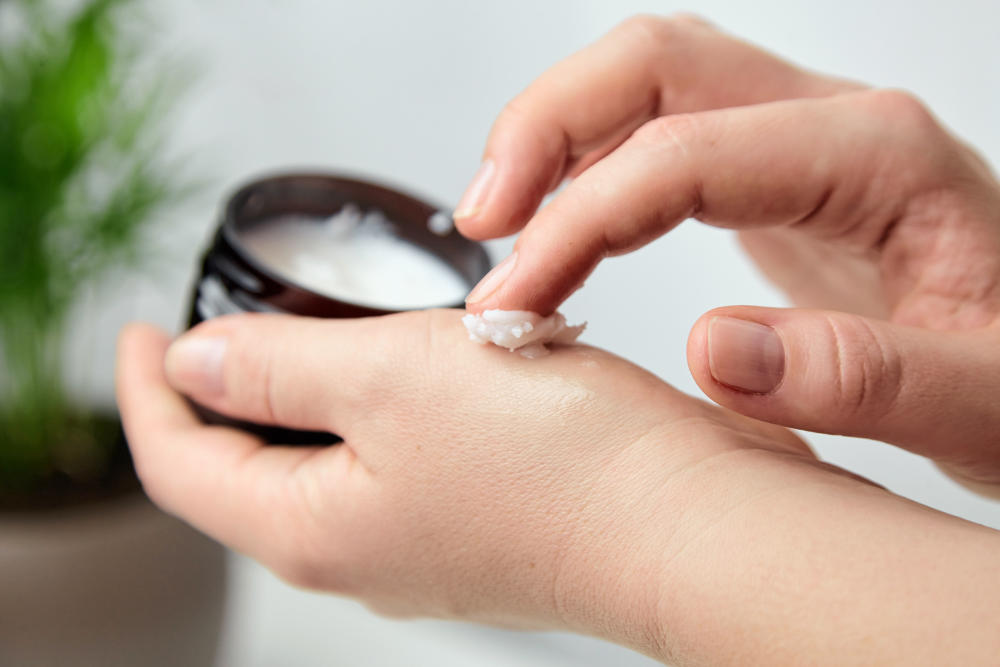
Importance of Treating Eczema
Proper eczema management can reduce the risk of complications such as bacterial and viral infections. Additionally, effective treatment in children can potentially lower the risk of developing other allergic conditions like asthma and hay fever.
Seeking Help for Eczema
Consult your GP, dermatologist, or pharmacist for personalised advice and treatment options. By understanding your condition and adopting these strategies, you can find immediate relief from eczema itching and improve your quality of life.
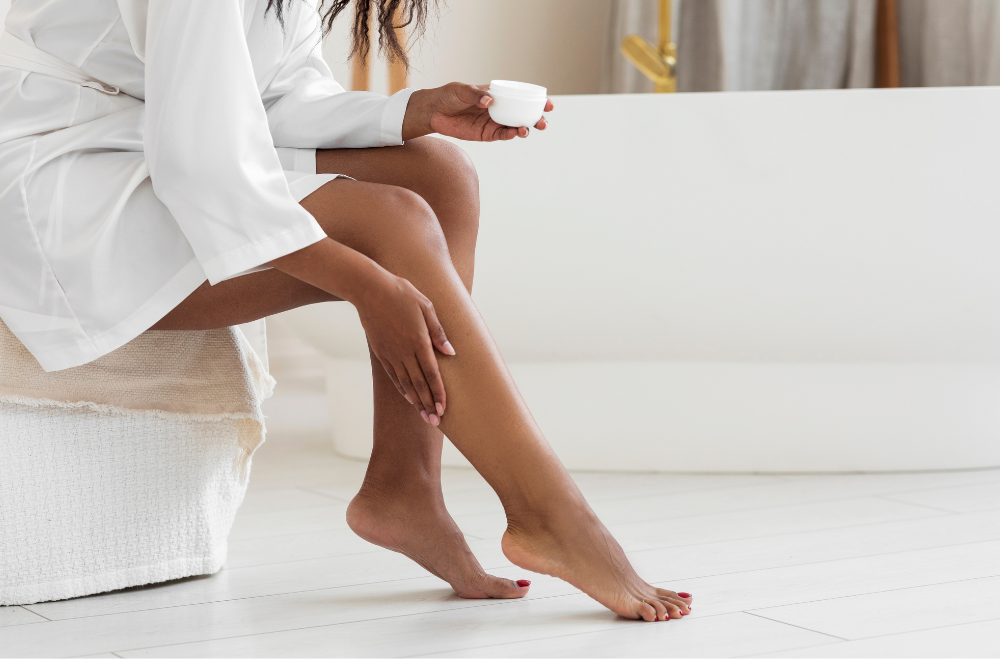
Lifestyle Changes to Manage Eczema Itching
In addition to skincare and medical treatments, making certain lifestyle changes can significantly impact eczema management and alleviate itching. Here are some lifestyle adjustments that can help eczema symptoms.
Maintain a Healthy Diet
While diet alone may not cure eczema, consuming a balanced diet rich in fruits, vegetables, lean proteins, and healthy fats can support overall skin health. Some individuals find that certain foods, such as dairy, gluten, or processed foods, can trigger eczema flare-ups. Consider keeping a food diary to identify potential trigger foods and adjust accordingly.
Stay Hydrated
Proper hydration is essential for maintaining skin moisture and reducing eczema symptoms. Drink plenty of water throughout the day to keep the skin hydrated from the inside out. Limiting alcohol and caffeine intake, which can dehydrate the body, may also be beneficial.
Manage Stress
Stress can worsen eczema symptoms and trigger flare-ups. Practice stress-reduction techniques such as meditation, deep breathing exercises, or yoga to promote relaxation and improve overall well-being. Seeking support from a therapist or counsellor can also be beneficial for managing stress-related eczema symptoms.
Avoid Overheating
Heat and sweat can worsen the itch sensation and trigger flare-ups. Avoid overheating by wearing loose, breathable clothing, especially during warmer months. Use fans or air conditioning to maintain a comfortable temperature indoors, and take cool showers to soothe irritated skin.
Limit Exposure to Irritants
Environmental irritants such as harsh soaps, detergents, fragrances, and chemicals can worsen eczema symptoms. Opt for gentle, fragrance-free skincare products, laundry detergents, and household cleaners to minimise irritation. Wear protective clothing, such as gloves, when handling chemicals or engaging in activities that may irritate the skin.
Establish a Skincare Routine
Consistent skin care practices are essential for managing eczema and preventing flare-ups. Develop a gentle skincare routine using mild cleansers and moisturisers formulated for sensitive skin. Avoid hot showers or baths, as they can strip the skin of natural oils and exacerbate dryness and itching.
Quit Smoking
Smoking has been linked to worsening eczema symptoms and can impair skin healing. If you smoke, consider quitting smoking or seeking support to help you quit. Avoid exposure to secondhand smoke, as it can also aggravate eczema symptoms.
Seek Support
Living with eczema can be challenging, both physically and emotionally. Seek support from friends, family members, or support groups to cope with the impact of eczema on daily life. Talking to others who understand your struggles can provide valuable support and encouragement.
By implementing these lifestyle changes alongside medical treatments and skin care practices, individuals with eczema can effectively manage itching and improve overall quality of life. Working closely with healthcare professionals to develop a comprehensive eczema management plan tailored to your unique needs and preferences is essential.
Manage eczema with hub.health. Start your consultation today!
Source:
-
Better Health Channel. Eczema (atopic dermatitis) [Internet]. Melbourne (Australia): Victorian State Government; [cited 2024 Jul 5]. Available from: https://www.betterhealth.vic.gov.au/health/conditionsandtreatments/eczema-atopic-dermatitis#causes-of-eczema



